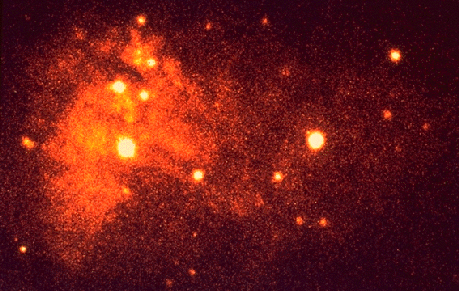Astronomy Picture of the Day
Discover the cosmos! Each day we feature a different image or photograph of our fascinating universe, along with a brief explanation written by a professional astronomer.
December 30, 1995

LMC X-1: A Black Hole Candidate
Credit:
ROSAT,
MPE,
NASA


